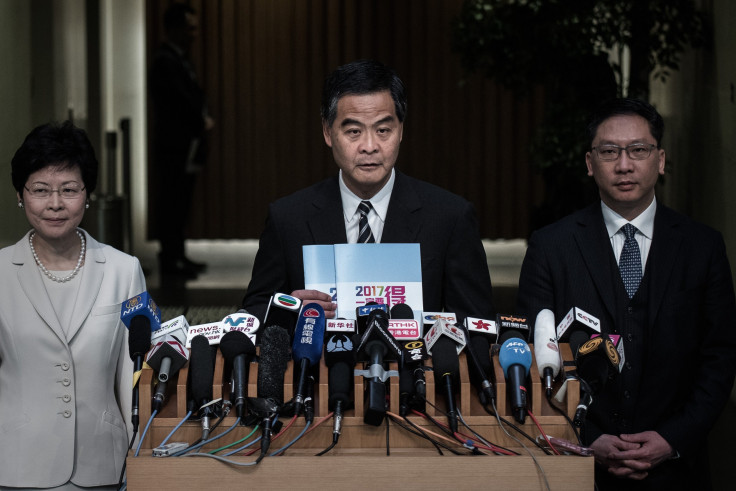Hong Kong 2017 Chief Executive Election Framework Could Be Amended: Senior Official

HONG KONG -- A senior government official in Hong Kong suggested Thursday that a tough framework laid down by China's central government to manage the election of the semiautonomous region's chief executive in 2017 could be amended in the future. The comments come a day after the controversial proposals came in for withering criticism from a section of the city's legislative body, which is seeking genuine universal suffrage from Beijing.
Carrie Lam, chief secretary in the government of the Hong Kong Special Administrative Region, told a local radio station that China's supreme legislative body, the National People's Congress (NPC), could revise the plan handed down this week, which has so far offered no effective concessions to pro-democracy protesters who became a major force in the city during last year's 'Umbrella Revolution.'
“The Standing Committee [of the NPC] has to make a decision on how to amend the electoral system,” she said. “It can make a decision based on the actual situation -- such as the ways to make the governance smoother at that time.”
The Hong Kong government released a blueprint for the 2017 election of the city's chief executive Wednesday, which was in line with a strict policy laid down by the central government in Beijing last year. It called for any candidates for the post of Hong Kong chief executive to be approved by a 1,200-strong nominating committee, which is widely regarded as being filled with members who support the position of China's ruling party.
The announcement prompted a walkout from the Hong Kong legislature’s minority “Pan-Democrat” camp. The group of legislators, who comprise a minority in the region's legislative council, command enough votes to block the passage of any new method of electing the region's next chief executive. A failure to pass the new, Communist Party-approved method of electing the region's leader, would result in the continuation of the current system, where the holder of the office is effectively appointed.
A state-run Chinese newspaper said Thursday that it would be "highly difficult" for the Hong Kong government to obtain Pan Democrat lawmakers' votes, which are necessary to pass the package.
In an editorial, the Global Times paper urged some Hong Kong residents not to “mess up” the city's democratic development, adding that “radical” lawmakers should not be allowed to hold the Beijing government hostage.
Reflecting the controversy that the 2017 election plan has stirred, the incumbent chief executive, Leung Chun-ying, berated critics who booed and heckled him as he tried to promote the Beijing-backed plan.
"Yesterday during [a constituency visit] there were some hecklers who kept using loud voices and quite uncivilized words to try to speak over others," Leung told reporters Thursday.
"It's not democratic behavior," he said. "We don't want to see such scenes at every district visit."
Hong Kong reverted back to Chinese sovereignty in 1997, after over 100 years as a British colony. As part of the agreement governing the handover, the region was promised a high degree of autonomy. Many critics in the region have accused Beijing of reneging on the promises it made on the democratic development of the region.
© Copyright IBTimes 2025. All rights reserved.






















